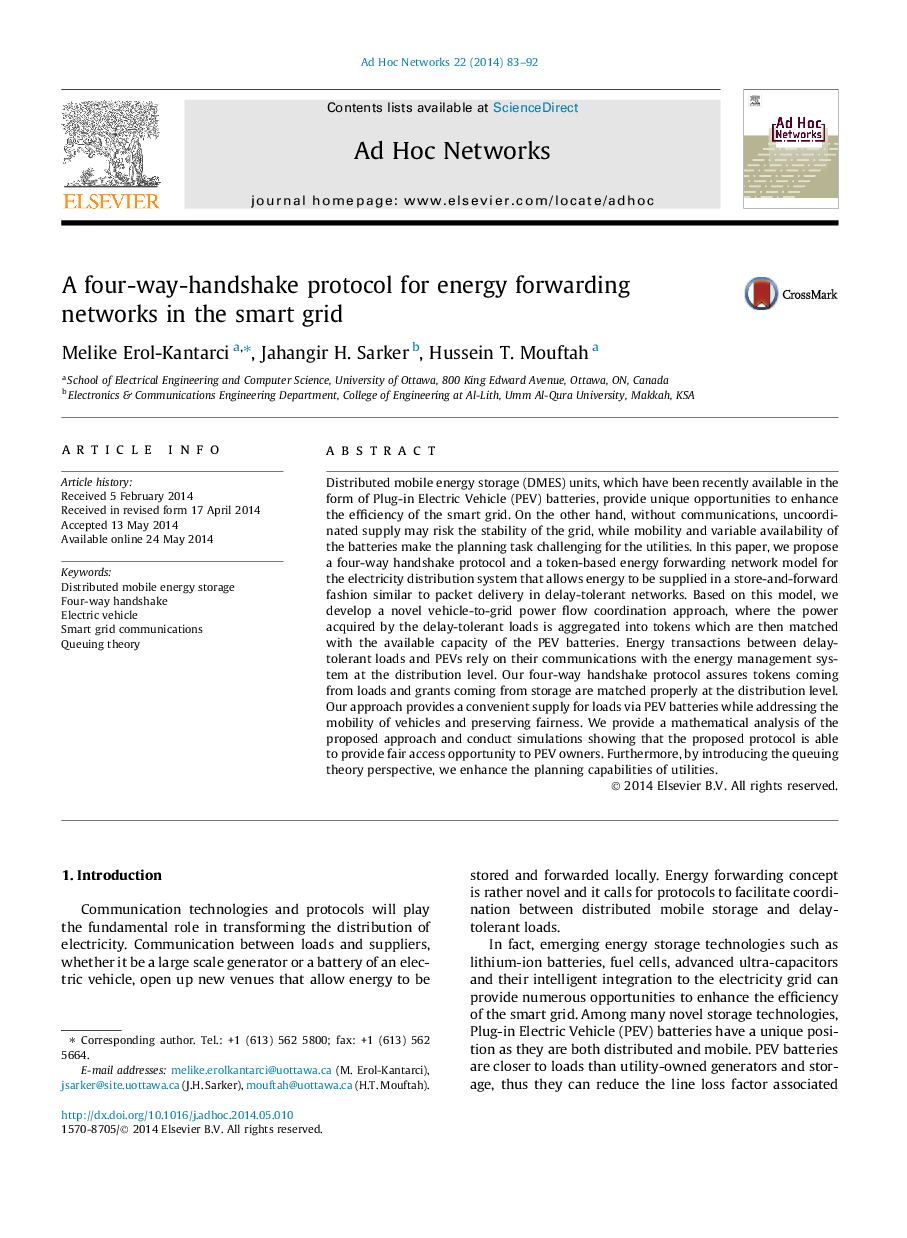| Article ID | Journal | Published Year | Pages | File Type |
|---|---|---|---|---|
| 446043 | Ad Hoc Networks | 2014 | 10 Pages |
Distributed mobile energy storage (DMES) units, which have been recently available in the form of Plug-in Electric Vehicle (PEV) batteries, provide unique opportunities to enhance the efficiency of the smart grid. On the other hand, without communications, uncoordinated supply may risk the stability of the grid, while mobility and variable availability of the batteries make the planning task challenging for the utilities. In this paper, we propose a four-way handshake protocol and a token-based energy forwarding network model for the electricity distribution system that allows energy to be supplied in a store-and-forward fashion similar to packet delivery in delay-tolerant networks. Based on this model, we develop a novel vehicle-to-grid power flow coordination approach, where the power acquired by the delay-tolerant loads is aggregated into tokens which are then matched with the available capacity of the PEV batteries. Energy transactions between delay-tolerant loads and PEVs rely on their communications with the energy management system at the distribution level. Our four-way handshake protocol assures tokens coming from loads and grants coming from storage are matched properly at the distribution level. Our approach provides a convenient supply for loads via PEV batteries while addressing the mobility of vehicles and preserving fairness. We provide a mathematical analysis of the proposed approach and conduct simulations showing that the proposed protocol is able to provide fair access opportunity to PEV owners. Furthermore, by introducing the queuing theory perspective, we enhance the planning capabilities of utilities.
